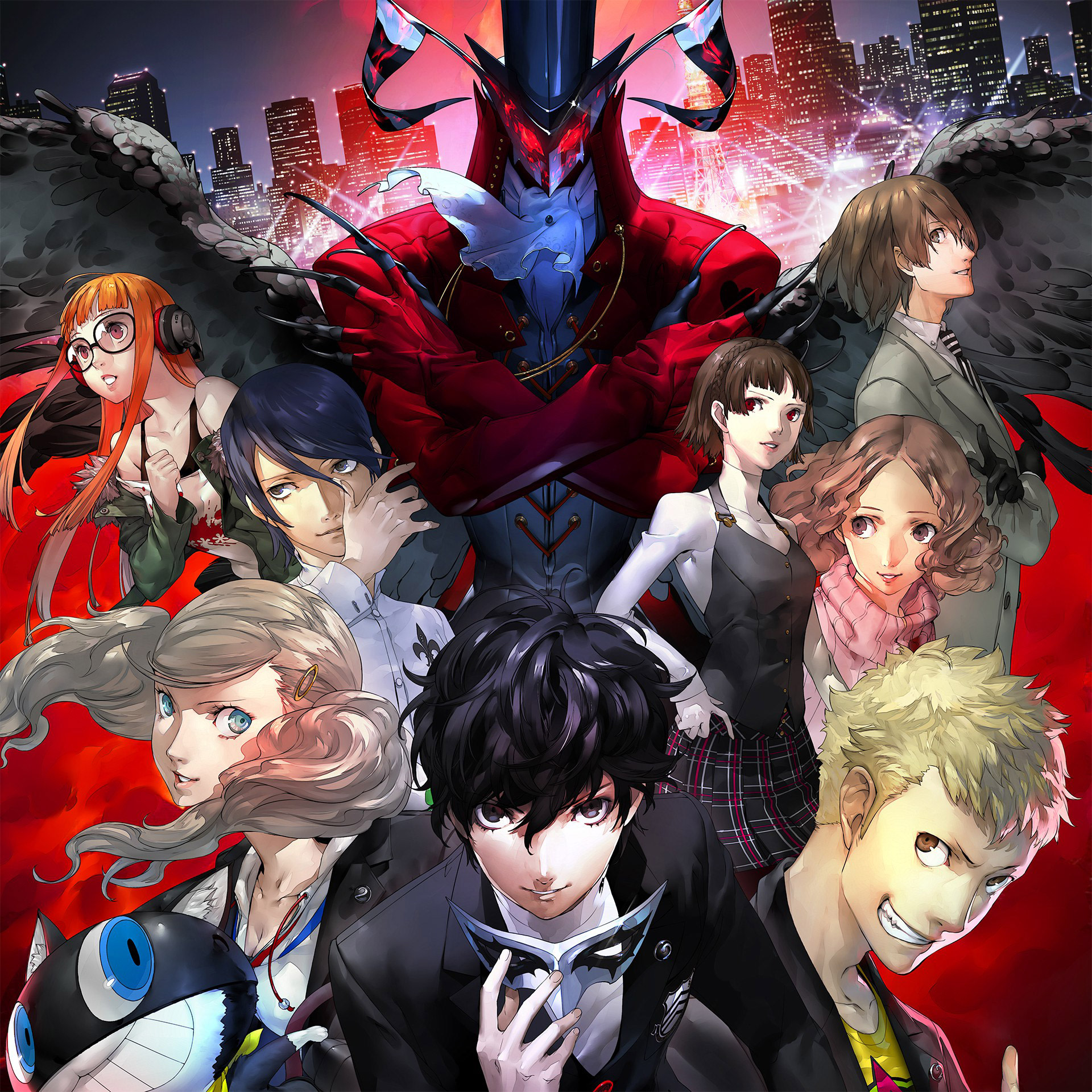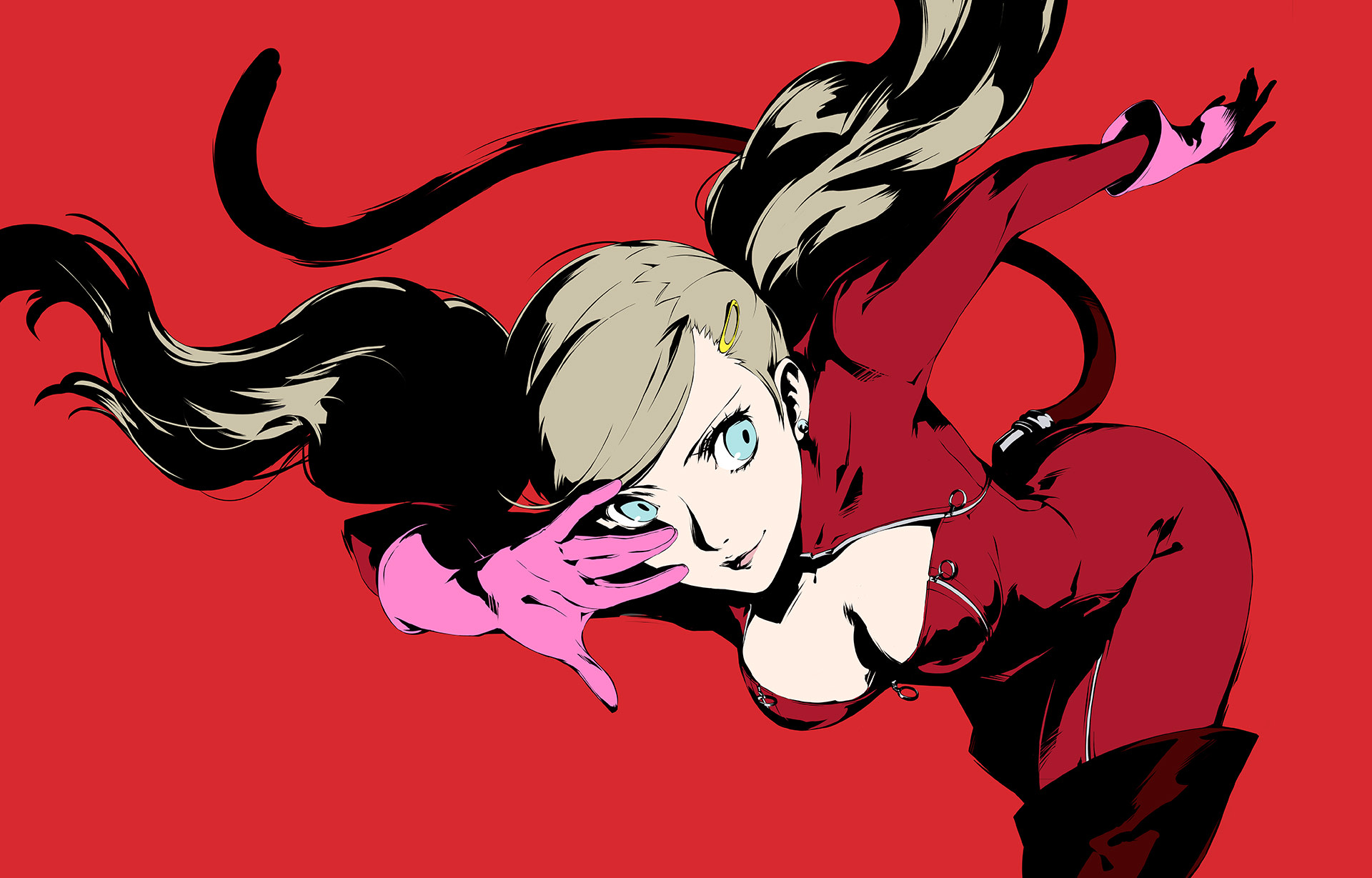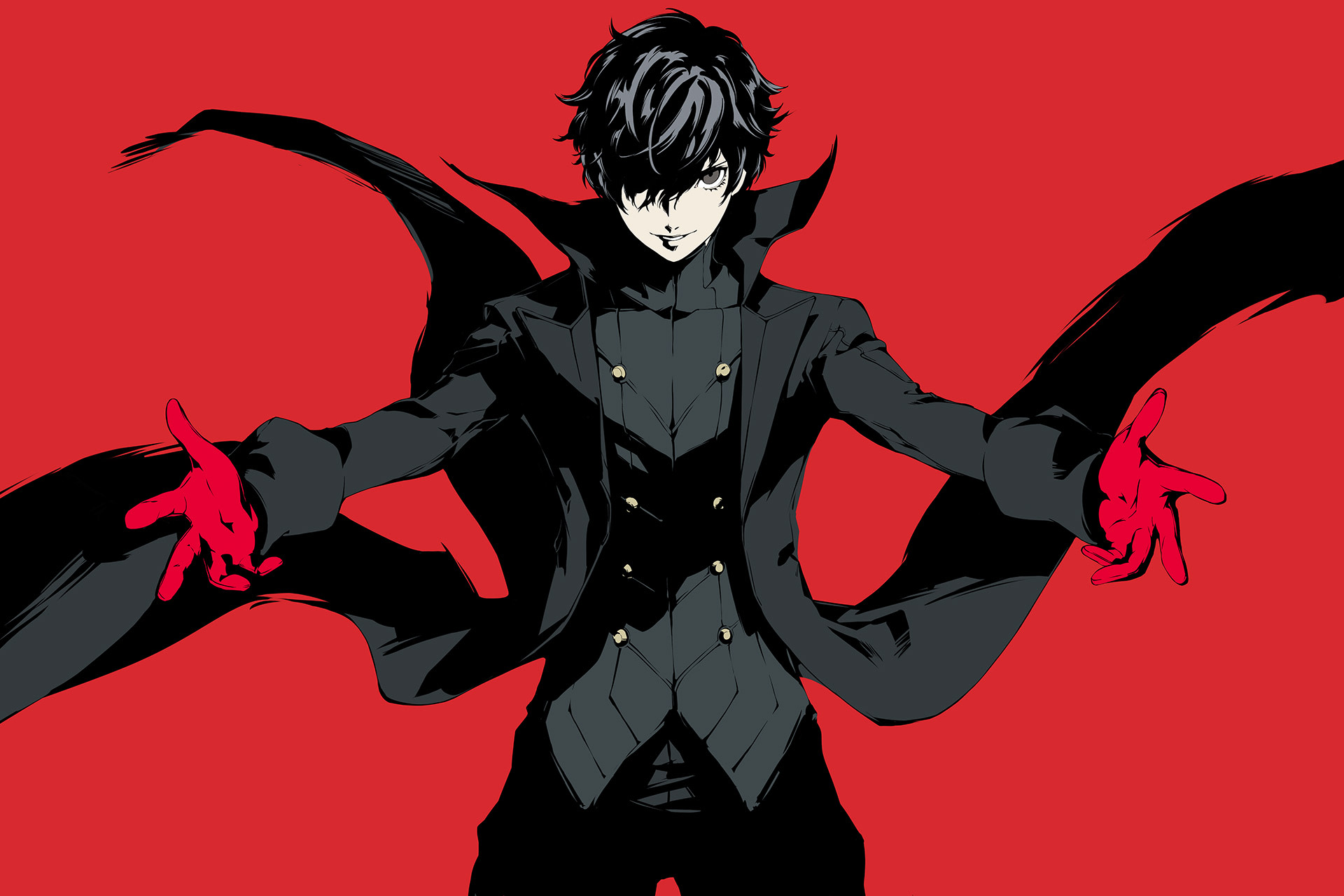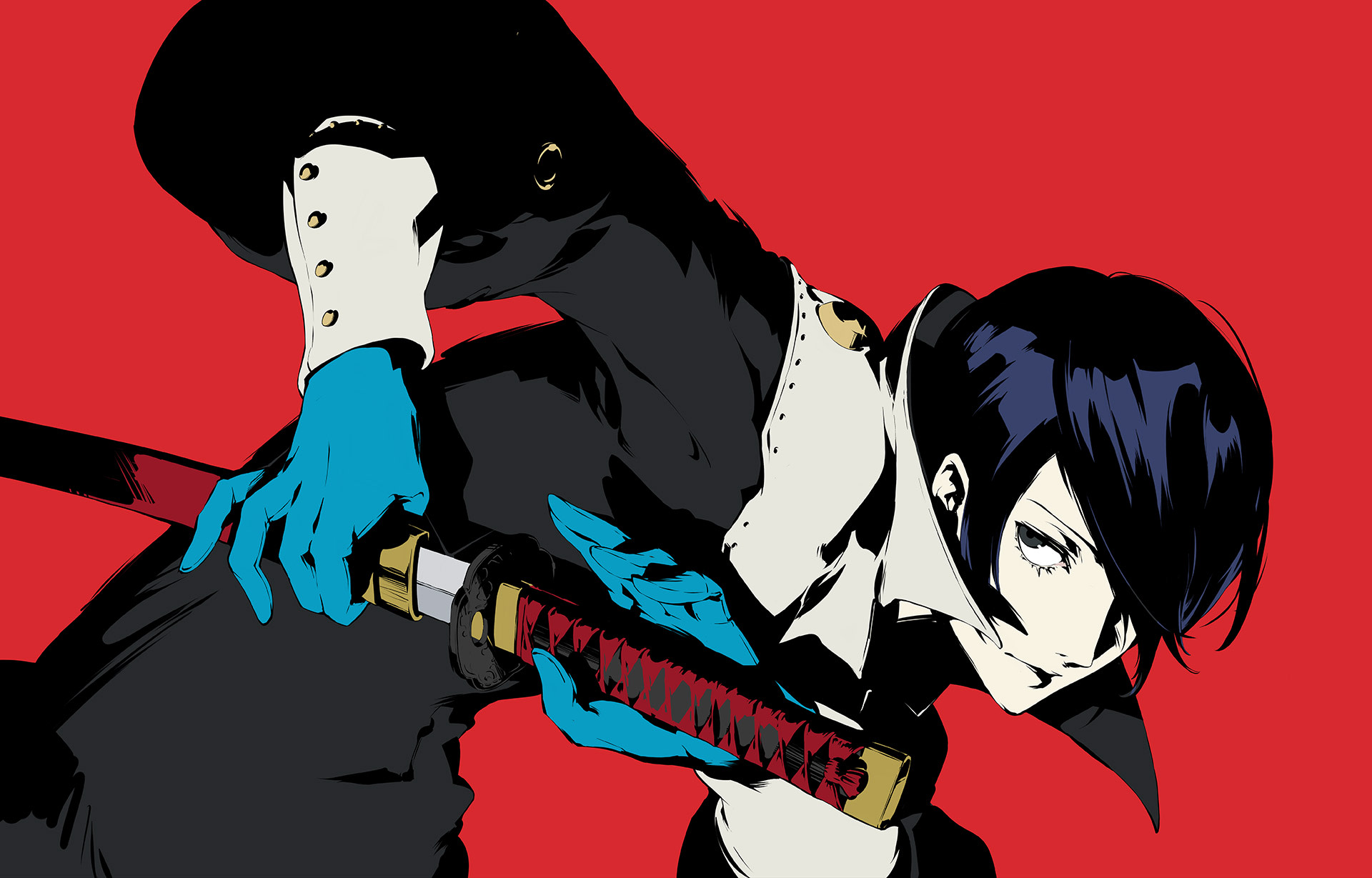Persona 5 is a role-playing video game developed by Japanese studio Atlus, first released in Japan September 2016, and worldwide April 2017. Despite its daring, mature content matter and distinctly Japanese artistic flavor it would be Atlus' best selling game of all time, an instant-classic JRPG resonating with audiences around the world. The sixth installment in the Persona game series, it’s also part of the larger Megami Tensei franchise of games, manga, anime and TV series.

article
Persona 5's Bombastic Art Direction
Read more about the video game and its distinct art direction.
Arjan Terpstra
28 Mar 2018 ⋅ 4 min read
Portrait of Ann Takamaki in her thieving outfit. Available as fine art print from our store by visiting this link.
Metaverse
The game is set in current-day Tokyo and follows a group of troubled high school students, lead by protagonist Joker, seeking freedom from a world governed by corrupted adults.
The game's duration is one school year, in which the group finds the series' eponymous 'Persona' powers and explores a supernatural 'metaverse' in which they are masked vigilantes who infiltrate the subconscious of people they meet in real life, seeking to eradicate the person's evil traits.
Portrait of Joker, Persona 5's main protagonist. Art print available from this website, see here.
Coming-of-age
Thematically, Persona 5 portrays a universe of adolescence and coming-of-age. Scenes often play out against a backdrop of mundane things like shopping or school lunch breaks, yet the grit of the game is in its treatment of harsh, traumatising realities like sexual assault, depression, or mental abuse, situations that beg for some kind of justice and redemption on the part of the students, which they find in the metaverse.
The contrasting mixture of rough and mundane subject matter, the constant switching between the reality of another day at school and a fantastical life where alter-egos summon demons to beat enemies, give Persona 5 a distinctly Japanese flavor.
Criticism
At times, the game even reads as a critique of Japanese society, in exploring how older and more powerful people pressure their younger peers into roles and behavior they are not happy about. Persona series director Katsura Hashino admitted as much in an interview, where he held up Persona 5 as a game about teenagers "bored and discontent with their lives."
"They’re at a dead end, chained down to a world of which they resent being a part." Persona 5 thus is a game about freedom, about teenage troubles, (mis)behavior and rascal attitudes. Yet despite some of the heavier subject matter, the game mostly feels light, upbeat and energetic, and is oozing with confidence and flare.
Portrait of Ryuji Sakamoto, one of the playable characters in Persona 5, and a prominent member of the Phantom Thieves. A deluxe print of this image is available through this website. Follow the link for more!
Visual design
Its visual design is outstanding, with character designs and user interface designs the standout features, while a (highly recommendable) soundtrack of dozens of upbeat acid jazz songs underscores the thrills of teenage life. Together, they combine into a spectacle of colors, sound and movement that keep the game upbeat and interesting throughout, even in some of its lesser parts.
Artistically, the game leans heavily on manga and anime traditions of large-eyed beau’s and well-clad villains, but it manages to escape clichés through the artistic flair of art director Shigenori Soejima. Raised on a menu of Doraemon, Gundam, and Miyazaki films, his character designs are defined by clean, cartoonish lines and a liberal use of bold colors.
Exaggeration
His work heavily informs Persona's overall style: every game uses a strong key color as a starting point, red in the case of Persona 5, supported by a color palette that pushes the key color to its vibrant limits.
The boldness of the color schematics is mirrored in a 'user interface design' that is textbook material for UI students. UI always plays out on the foreground of a game, but Persona 5's UI is truly something in-your-face. Explosions of text in over-exaggerated fonts and sharp, loud colors are presented on oversized strips, informing the player of statistics, actions, or results, all the while communicating the youthful energy of the group you follow.
Portrait of Yusuke Kitagawa in his Fox outfit. The image is available as a deluxe art print at this link.
Bombastic presentation
The final result is a videogame that looks like manga sprung to life, or anime made interactive. The art is slick, the characters stylish, the presentation bombastic, every new splash screen a visual treat. The game exaggerates its visuals, on purpose: over and over again, it charges the feeling of youthful optimism and the excitement of living a double-life, the thrill of inhabiting personas that are simply the coolest cats you'll ever meet.
Persona 5 may have been envisioned as a 'game about freedom', it also serves as a wonderful ode to youth.
The official Persona 5 stationery set, available on this website through this link.




